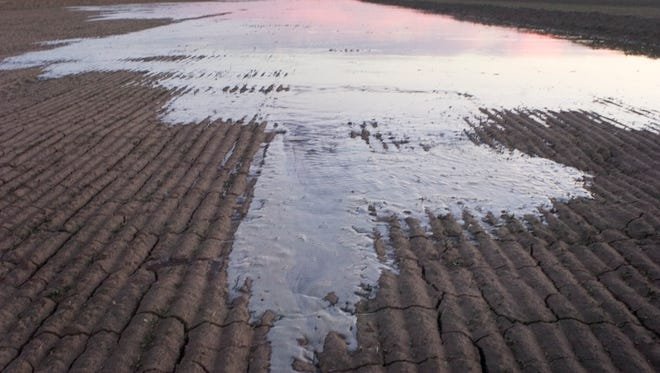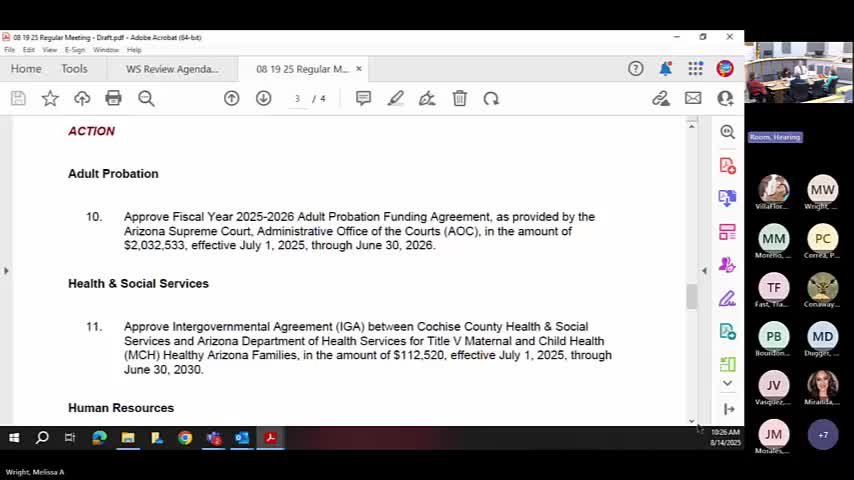Leaders in Arizona's rural counties are calling on the governor and other states to protect water supplies as Middle Eastern companies move to the state to grow alfalfa that will be shipped overseas to feed cattle. Requesting assistance from authorities.
Companies from Saudi Arabia and the United Arab Emirates have purchased thousands of acres in the Arizona desert for large-scale farming operations.
China-based companies are doing similar things in other parts of the Western world. Due to water shortages in the Middle East, some companies are relocating to countries such as the United States.
La Paz County leaders are outraged by the trend, arguing that companies are abusing Arizona's groundwater law, which allows farms to pump as much water as they want during times of drought. County leaders are concerned about the future of water supplies and believe businesses should pay more in property taxes and fees as water dries up.
Montini: Saudi Arabians are siphoning water from Arizona to make hay
“We just want to make sure that the people who have lived in La Paz County and invested in La Paz County don't run out of water,” County Supervisor Holly Irwin said.
The aquaculture operation also drew attention to the peculiarities of Arizona's 1980s groundwater law. While major population areas of the state such as Phoenix and Tucson have limits on how much water can be extracted from the ground, most rural counties have no limits.
Water users there have to do little more than register their wells with the state and use the water for beneficial uses such as agriculture.
As a result, Scottsdale, Tucson and Phoenix have purchased land in La Paz County in hopes of extracting groundwater and sending it back to their communities through canal networks, county officials said.
The land could be worth millions of dollars. Part of the reason is because of the water underneath. The city of Phoenix recently sold 13,000 acres of land in La Paz to a U.S.-based agricultural corporation for $30 million, county officials said.
Saudi Arabia-based dairy company Almarai farms alfalfa in Arizona under its subsidiary Fondomonte Arizona LLC. Last year, the company bought about 10,000 acres of land in Vicksburg for $47.5 million to protect Saudi Arabia's water resources.
Our view: It's not Saudi, it's alfalfa
Fondomonte General Counsel Jordan Rose said the company is adept at farming in arid environments and uses a drip irrigation system that allows the crop to grow with less water than a typical alfalfa farm. . Alfalfa usually requires a lot of water.
Irwin said another large farm will be operated by a company called Al Dara Farming USA, which has ties to the United Arab Emirates. Neither Al Dara nor the International Agricultural Corporation, which purchased the land from Phoenix, responded to requests for comment on Friday.
La Paz is one of Arizona's least populated counties, with approximately 20,000 residents living in 4,500 square miles in the western part of the state. Less than 6 percent of the county's land is privately owned, much of it federally owned, according to county officials.
La Paz County residents could seek regulation of their groundwater by asking state legislators to impose a water use tax or by petitioning the Arizona Department of Water Resources to create a groundwater management area.
Department spokeswoman Michelle Moreno said county officials have not inquired about the watershed that includes Fondomonte Farms, but are asking for a hydrological study of the adjacent watershed. The department had concluded that the county's water needs could be met for 100 years. That conclusion was drawn before large-scale farms began operations. These farms are not required to report their water use to the state.
Letter: Ask Saudi Arabia to pay for water the same way it pays for oil
“It's clear that people are concerned about moisture in their crops,” said department director Tom Buschatke. “But our view is that there is economic value in growing crops. We have the right to export.”
Gov. Doug Ducey's office did not return calls seeking comment.
The Arizona Legislature has not made any major changes to groundwater law since 1980. Mr. Ducey's office recently announced an initiative based on a plan that examines water needs and local challenges over the next five years. Moreno said groundwater modeling is one of the recommendations in the plan.
Irwin said the county welcomes the farm and the jobs it brings to a county that struggles without a large tax base. She said the county should have the right to protect its groundwater supply.
“We probably weren't thinking about this issue when the law was enacted,” she says. “Of course, water is a big issue now. They're talking about drought everywhere.”







